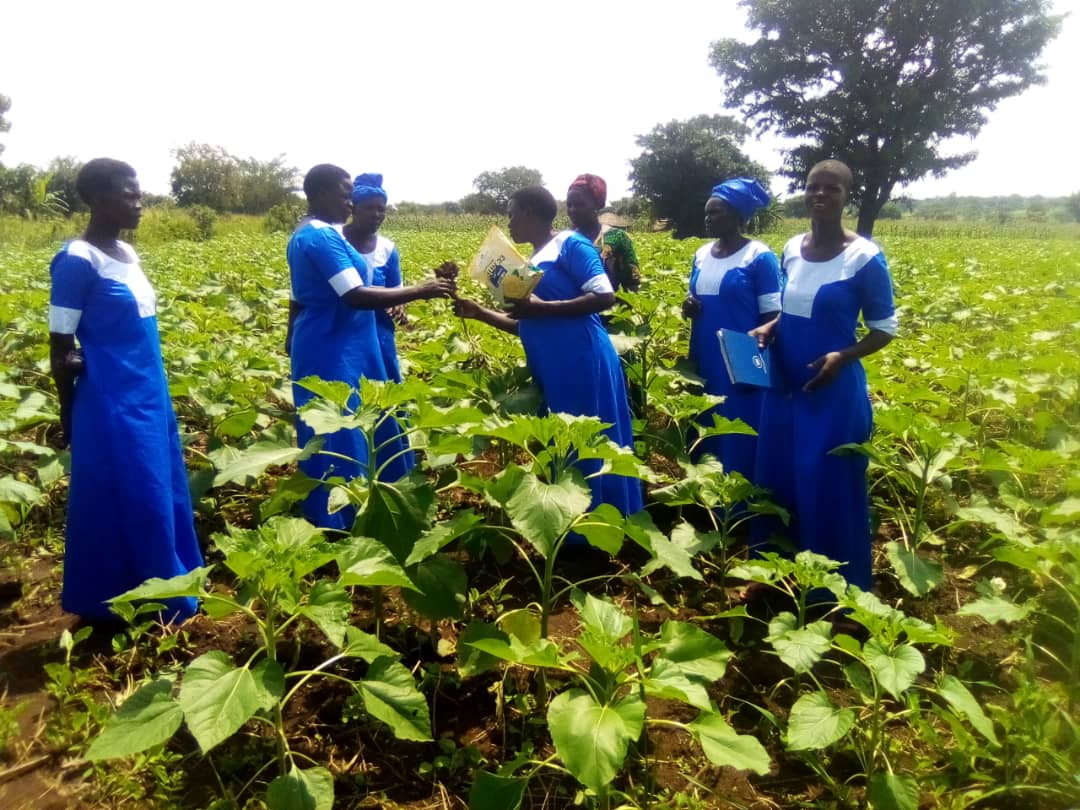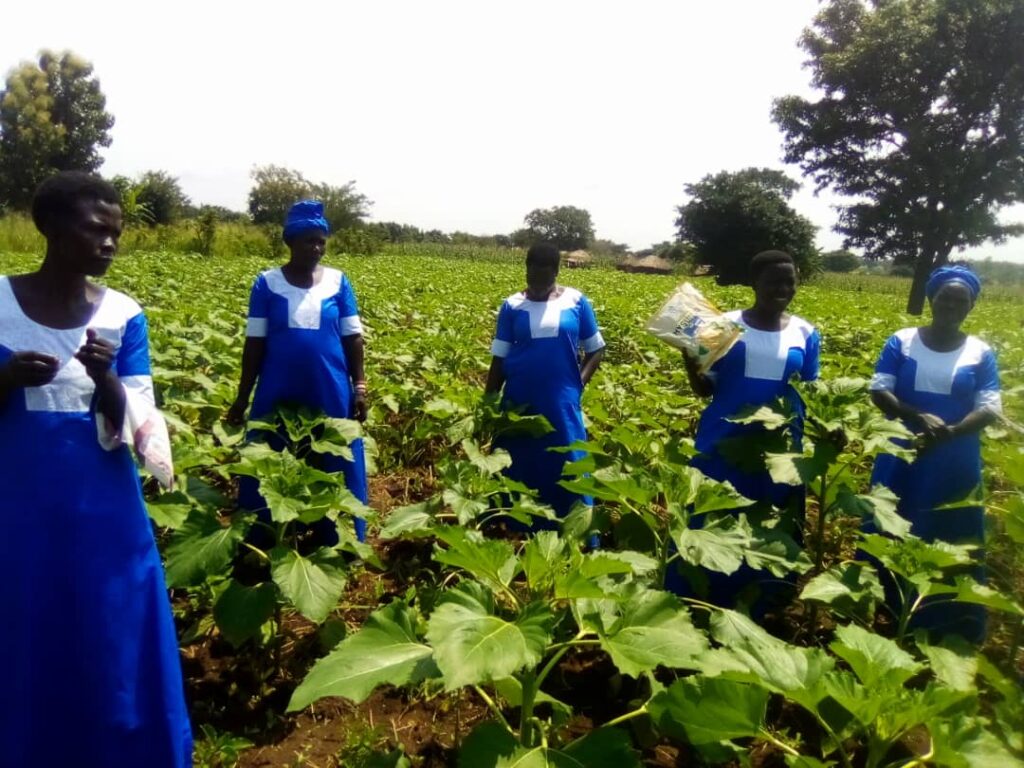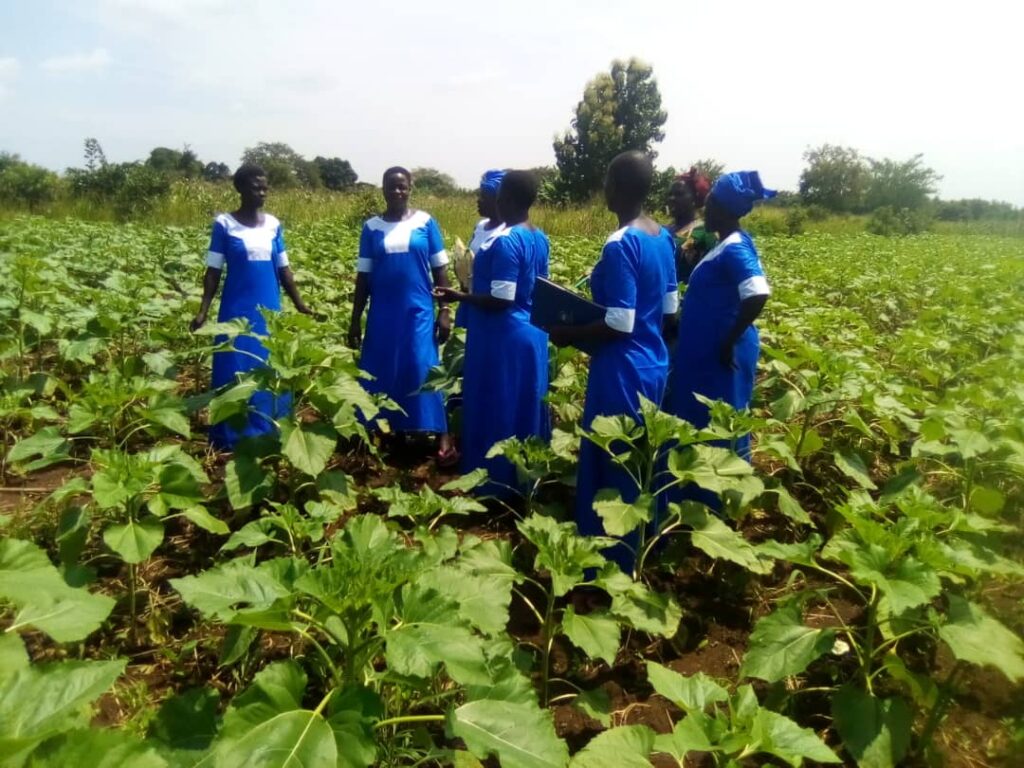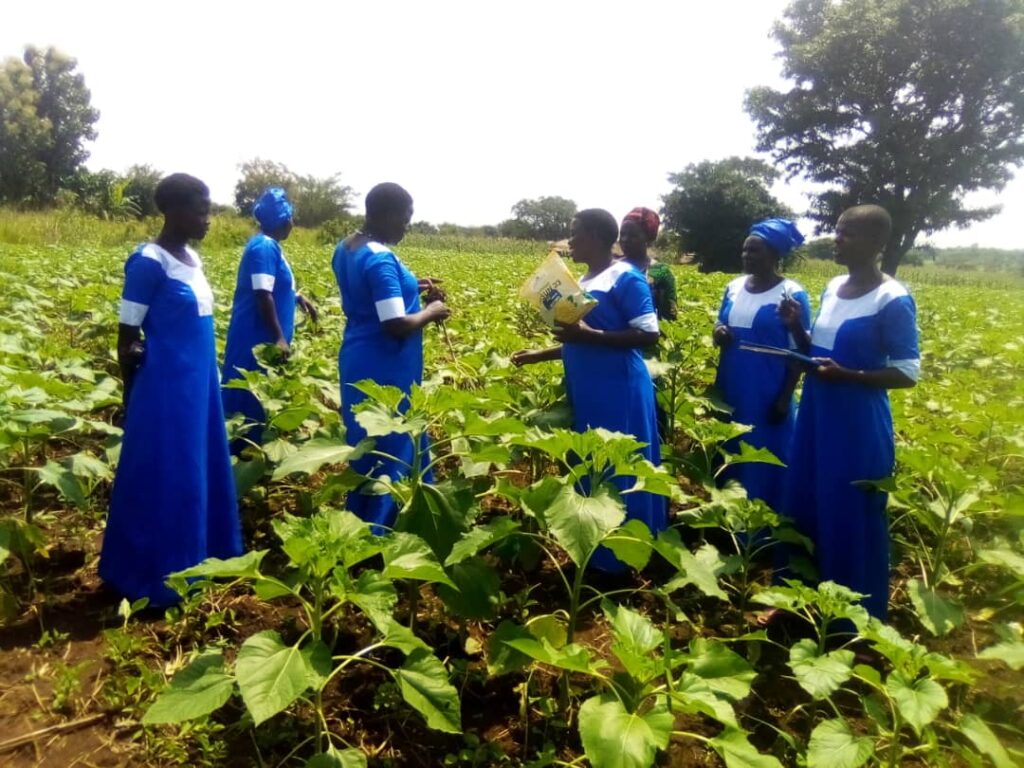
 LUO FM
LUO FM

 LUO FM
LUO FM
22 July 2025, 7:17 pm

By Geoffrey Okwong
A group of 25 women farmers aged between 30 and 60 years has come together to cultivate sunflowers alongside other cash crops, significantly improving their livelihoods.
The women, all residents of Otok Parish in Pajule Sub-county, Pader District, have embraced sunflower farming on plots ranging from three to ten acres per member.
The group receives support every planting season from Alito Joint in the form of seedlings and agricultural training.
Tamali Aringo, 45, is the General Secretary of Wa Gwoku Paco Women’s Group, which operates under the larger Watwero Farmers Group in Otok, Pajule. She revealed that Alito Joint has been supporting them with sunflower seedlings since 2022, making this the fourth consecutive year.
“In addition to soya beans, sunflower, and maize, Alito Joint also provided us with a solar-powered water pump, which has been a great help during dry spells or when the sun is too intense,” Aringo said.
She added that she personally planted eight acres of sunflower this first season, while other members planted an average of three to four acres each.
After harvest, Alito Joint purchases the sunflower produce from the group at what Aringo described as a fairly good price, helping them sustain their farming activities.
Aringo further noted that the group also received four kilogrammes of maize seeds from Export Trade Group (ETG), which they were instructed to first use in demonstration farms.
Reflecting on their journey, Aringo shared that before learning about Alito Joint through radio, the group was struggling. They practised subsistence farming without access to improved seeds or knowledge on climate-smart agriculture.
“Since joining the programme, my life has greatly improved. I am now able to pay school fees for my children in better schools that meet their basic needs. Other group members have also expanded their farms and improved their agricultural practices,” she said.
She added that the same group also provided them with fertiliser and ropes to help line up their seedlings when planting in the demonstration farm.
When asked about the challenges they face both individually and as a group, Aringo said their biggest problem is animals straying into their gardens and, in some cases, stubborn community members deliberately tethering animals in their fields.
Lucy Arach, 35, another member of the group, said she is involved in sunflower and simsim (sesame) farming. She noted that most group members have been supplied with the Hysun 33 variety of sunflower seeds.
Arach shared that since 2022, thanks to sunflower farming, she has managed to buy two oxen for ploughing and has also constructed a three-bedroom house in her village.
She added that she has been able to farm successfully because Alito Joint allows them to pay for the seeds after the harvest, which eases financial pressure on farmers.
Christopher Okwang, Director of Alito Joint, said they have been supporting the group in Pajule Sub-county, Pader District, with seed supplies since 2022.
Okwang noted that a total of 16,815 farmers across the Acholi, Lango, and Karamoja sub-regions have benefited from their initiative, which involves supplying improved seeds with post-harvest payment and helping farmers market their produce.
https://public.flourish.studio/published_thumbnails/visualisation/24370046/71fae560a9e8dca2.jpg
The graph above represents the Soybeans seeds planted with the Expected output in kgs and the Actual harvest per year against quantity per year.

He said that in Pader District, the group is provided with improved, quality-declared seeds such as maize, sunflower, soya beans, and simsim, and they are earning well from their hard work.
He also noted that through collaboration with Palladium, they have jointly addressed issues related to climate change by providing seeds that are resilient and can be grown with minimal difficulty, thereby improving farmers’ livelihoods.
https://public.flourish.studio/published_thumbnails/visualisation/24370133/3383c36662e80e46.jpg
The graph above shows the quantity planted in Kgs year with the Expected yield in kgs and the actual harvest in kgs at different quantity
Charles Ojwee, the District Agricultural Officer for Agago, explained that improved seeds—also known as tolerant varieties—are designed to withstand the adverse effects of climate variability.
Ojwee observed that the challenges experienced in local communities are a result of climate variability, which includes prolonged dry spells, flooding, pest and disease infestations, and rising temperatures.

“Improved seed varieties can withstand harsh weather conditions and produce better yields compared to the local or native varieties we have traditionally planted,” said Ojwee.
When asked about the grain quality of improved seeds versus local varieties, Ojwee explained that the improved varieties also produce high-quality grains. He added that the chances of experiencing poor yields are significantly lower with these seeds.
Although improved seeds are more expensive on the market and typically planted only once, Ojwee noted that many local varieties have lost their vigour and are less suited to current field conditions. This makes improved varieties a more reliable option, especially given the changing climate patterns across various regions.
Nevertheless, he acknowledged the value of local varieties, stating that while they are still useful, they cannot match the performance of improved ones. He gave the example of local cassava and sorghum varieties, noting that traditional sorghum can take six to eight months to mature, while the improved variety takes only three months. “This means a farmer can plant it more than once a year,” he explained.
On farming practices that can help farmers adapt to climate change, Ojwee recommended agroforestry — encouraging farmers to plant more trees to help mitigate the effects of greenhouse gases.
He also advised farmers to practice crop rotation by planting different crops in each farming season. “This allows for the rotation of nutrients, as different crops use different nutrients, and it reduces the likelihood of pests that may have affected the previous crop,” he said.
“This approach also breaks the life cycle of pests. In addition, allowing a field to rest for several years helps it regain its fertility,” he added.
Ojwee further encouraged the use of organic fertilizers, such as cow dung, to enrich the soil. He pointed out that in climate-smart agricultural practices, the use of factory-made fertilizers is discouraged due to their harmful effects on the environment.
He criticized the use of herbicides to clear fields, stating that such practices are not recommended in climate-smart agriculture. “Herbicides damage soil structure and kill beneficial microorganisms,” he said.
“These microorganisms are essential for soil fertility, maintaining balance, and improving overall soil structure,” he concluded.
The production of this story was supported by InfoNile in partnership with Palladium under the Climate Smart Jobs initiative.